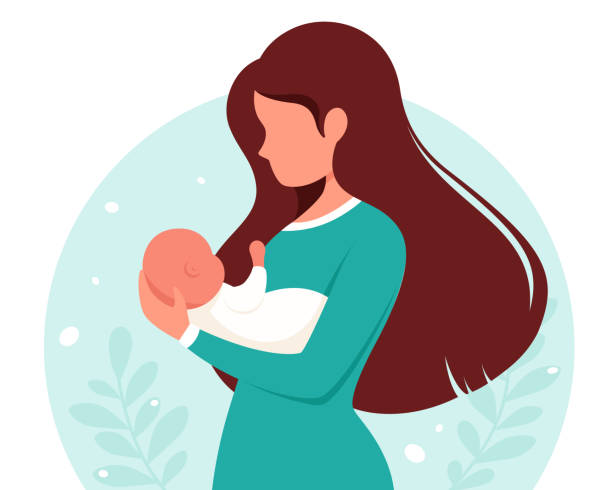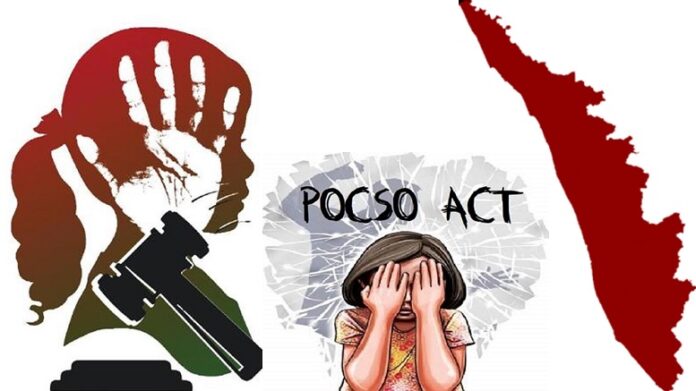‘Prayer Completely Unwarranted’: Delhi High Court Rejects Woman’s Plea Seeking DNA Sample Of Husband, Father-In-Law For Matching With Own Children
Terming it a case with an unusual prayer, the Delhi High Court has dismissed a woman’s plea seeking directions for her husband and father-in-law to submit their DNA Samples before a DNA profiling agency in Rohini. The woman along with her two children had approached the court after the father-in-law allegedly “cast doubt” on their identity by claiming that “they are not Mehtas* but Aroras*”. Justice Prathiba M. Singh in the ruling said the prayers in the petition are extremely vague. However,the court added that DNA testing was being sought. “The settled legal position that DNA testing is to be ordered very sparingly and cannot be directed on the basis of allegations such as those that are made in this writ petition,” the court said as it refused to grant the prayer. The court relied upon Bhabani Prasad Jena v. Convenor Secretary, Orissa State Commission for Women wherein the apex…
Citizens cannot be forced to choose between right to education and right to reproductive autonomy: Delhi High Court
While deciding a case wherein an M.Ed. student sought maternity leave in the absence of specific provisions for the same, the Court pondered over the consequences society would impose upon a woman who bears a child. The Delhi High Court recently directed Chaudhary Charan Singh University in Meerut to allow an application for maternity leave by a Master of Education (M.Ed.) student if she fulfils the minimum attendance requirement [Renuka v. University Grants Commission]. While passing the order, Justice Purushaindra Kumar Kaurav underscored that citizens could not be forced to choose between their right to education and their right to exercise reproductive autonomy. “A man could then well enjoy parenthood while pursuing his higher education, whereas a woman necessarily has to undergo pre and post pregnancy care. It is not her choice, but the will of nature. What is, however, left for us to decide is the consequence we would impose upon…
Teachers are considered Gods in India: Karnataka High Court denies bail to teacher accused of sexually assaulting students
The Court said that because of the petitioner’s behaviour, parents will be reluctant to send their girl children to school. The Karnataka High Court recently denied bail to a teacher accused of sexually harassing and assaulting his minor girl students. [C Manjunath v. State of Karnataka and Anr] Justice Umesh M Adiga observed that the offences were heinous in nature and that the petitioner, without considering his position and status in society as a teacher, allegedly sexually harassed minor students. The Court further said that teachers in the country are considered gods but because of the petitioner’s behaviour, parents will be reluctant to send their girl children to school. “The alleged offence are heinous in nature. Mercilessly, without thinking his status and position in the society, he has sexually harassed students who were studying in IV and V classes. Guru or teacher are considered as God in this Country and respected like a…
Daughter-in-law’s right to live in shared household cannot be to the exclusion of in-laws: Delhi High Court
The Court ruled that the petitioner’s stance that her in-laws should not be allowed to live in their own property was contrary to the settled understanding of the subject. The Delhi High Court on Monday ruled that a daughter-in-law’s right in a shared household is not an indefeasible right and cannot be to the exclusion of the in-laws [Ritu Chernalia vs Amar Chernalia and Ors.] Justice Pratibha M Singh relied on the Supreme Court’s judgment in Satish Chander Ahuja vs Sneha Ahuja and said that it was clear that the right is not absolute and could not be to the exclusion of in-laws. Hence, the Court ruled that the petitioner’s stance that her in-laws should not be allowed to live in their own property was contrary to the settled understanding of the subject. “Thus, the concept of ‘shared household’ clearly provides that the right of the daughter-in-law in a shared household is not an…
Duty of every court to have sensitive heart, alert mind while conducting trial in sexual assault cases: Delhi High Court
The Court said that though the State and administration can provide modern infrastructure to judges, it cannot generate a sensitive heart of a judge. The Delhi High Court recently observed that it is the duty of every court to not only have a sensitive heart, but also an alert mind while conducting trials, especially in sexual assault cases [Sanjeev Kumar v. State]. While setting aside a trial court judgment convicting a man for rape, kidnapping and other offences, Justice Swarana Kanta Sharma noted that the material brought on record by the prosecution was insufficient to confirm his guilt. “It is also the duty of every Court to not only have a heart which is sensitive but also a mind which is alert while recording and conducting trial, especially in sexual assault cases, so that the trial is not diverted to a direction which is totally unconnected, uncalled for and causes further trauma…
Seeking details of call records, hotel stay to prove adultery does not violate right to privacy: Delhi High Court
The Court rejected an appeal by a man who invoked the right to privacy and challenged a family court order summoning hotel records where he stayed with his ‘friend’. The Delhi High Court recently held that demanding details of hotel room bookings and call detail records (CDR) for proving a case of adultery does not amount to violation of the right to privacy. Justice Rekha Palli held that the right to privacy is not an absolute right and is subject to reasonable restrictions if they are in public interest. “The Hindu Marriage Act specifically recognises adultery as a ground for divorce and therefore, it would not at all be in public interest that the Court should on the ground of right to privacy, come to the aid of a married man who, during the subsistence of his marriage, is alleged to have indulged in sexual relationships outside his marriage,” the order said. Justice…
HOW WITNESSING DOMESTIC VIOLENCE CAN AFFECT CHILDREN
For parents who fall victim to domestic violence, the abuse endured takes a toll on their well-being. However, parents who fall victim to domestic violence are not the only ones who are affected by domestic violence. Domestic violence can have negative effects on every member of the family, including children. The effects of domestic violence on children who watch their parents being abused are heart-breaking. Below is a look at how witnessing domestic violence can affect children. How Witnessing Domestic Violence Can Affect Children Emotionally Witnessing domestic violence can lead to children suffering many emotional consequences. Some of the emotional complications a child who has witnessed domestic violence can suffer include; Shame Guilt Intense grief Fear of abandonment Anger Self-blaming tendencies Embarrassment Depression Unfortunately, the emotional consequences of witnessing domestic violence can plague a child for years to come. For example, an anxious child raised in an abusive environment may…
POCSO Act was not enacted to punish minors in romantic or consensual relationship: Bombay High Court
The Court granted bail to a 23-year-old man booked for kidnapping and raping a minor girl, after noting from the statement of the victim’s mother that the relationship was consensual. The Protection of Children from Sexual Offences (POCSO) Act was not enacted to punish minors in a romantic or consensual relationship, the Bombay High Court observed while granting bail to a 23-year-old man who was booked on charges of raping a minor [Imran Iqbal Shaikh v. State of Maharashtra]. Justice Anuja Prabhudessai noted from the statement of the victim’s mother that the relationship between her daughter and the applicant-accused was a consensual one. “The Applicant was also a young boy of 22 years of age at the time of the incident. The statement of the first informant, prima facie indicates that the relationship was consensual. It needs to be noted that the POCSO Act has been enacted to protect children from offences of sexual…
No person can be expected to live with constant abuse: Delhi High Court upholds divorce on ground of cruelty by wife
Every person is entitled to live with dignity and honour, and repeated use of derogatory words is clearly humiliating and would certainly amount to cruelty, the Court said. The Delhi High Court recently observed that constant use of derogatory and humiliating words by a wife against her husband and his family amounts to cruelty as a ground for divorce [Deepti Bhardwaj v. Rajeev Bhardwaj]. While upholding the dissolution of marriage and consequent divorce of a couple, a Bench of Justices Sanjeev Sachdeva and Vikas Mahajan noted, “Repeated use of words of the nature as extracted herein hereinabove are clearly humiliating and would certainly amount to cruelty. No person can be expected to live with constant abuse being hurled upon him.” The Court was hearing a challenge by the appellant-wife against a family court order allowing the petition filed by the respondent-husband under Section 13(1) (i-a) of the Hindu Marriage Act seeking dissolution of marriage…
Widowed/ divorced daughters of freedom fighters entitled to pension under Swatantrata Sainik Samman Pension Scheme: Delhi High Court
The Court said that the term ‘unmarried’ not only includes a person who is not married but also divorced and widowed. The Delhi High Court on Friday held that a widowed or divorced daughter of a freedom fighter is entitled to pension under the Swatantrata Sainik Samman Pension Scheme of 1980 [Union of India v Kolli Uday Kumari]. A division bench of Justices Rajiv Shakdher and Talwant Singh dismissed an appeal by the Central government challenging an order of the single-judge granting benefit of pension to one Indira Kumari. The division bench rejected the Centre’s arguments that the term ‘unmarried daughter’ excludes widowed and divorced daughters and that allowing benefits to them would result in opening the floodgates and will burden the exchequer. The Court said that the expression ‘unmarried’ not only includes a person who is not married but also a woman who is single i.e., who was married but divorced and even a…










